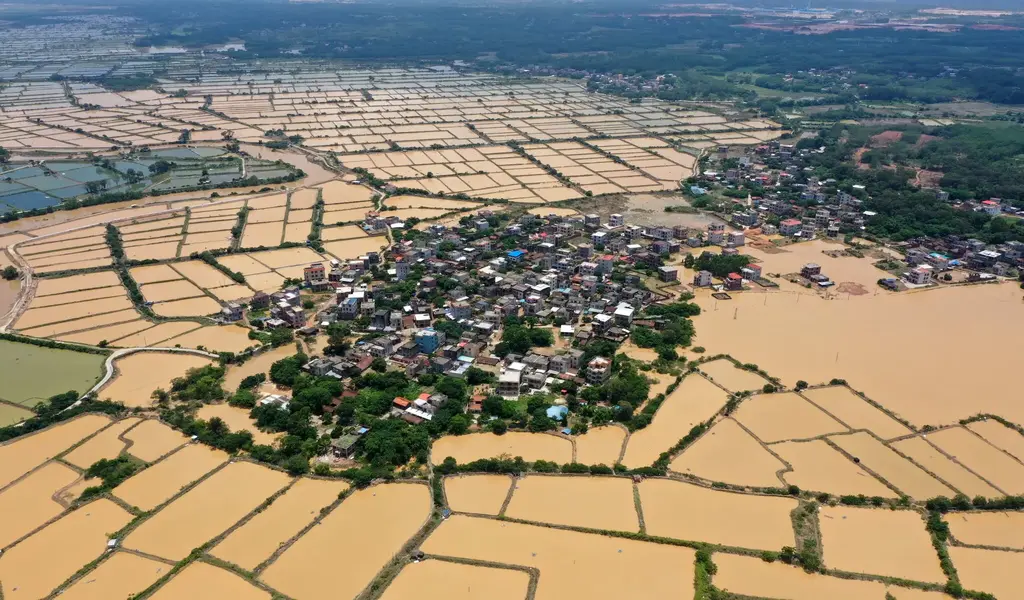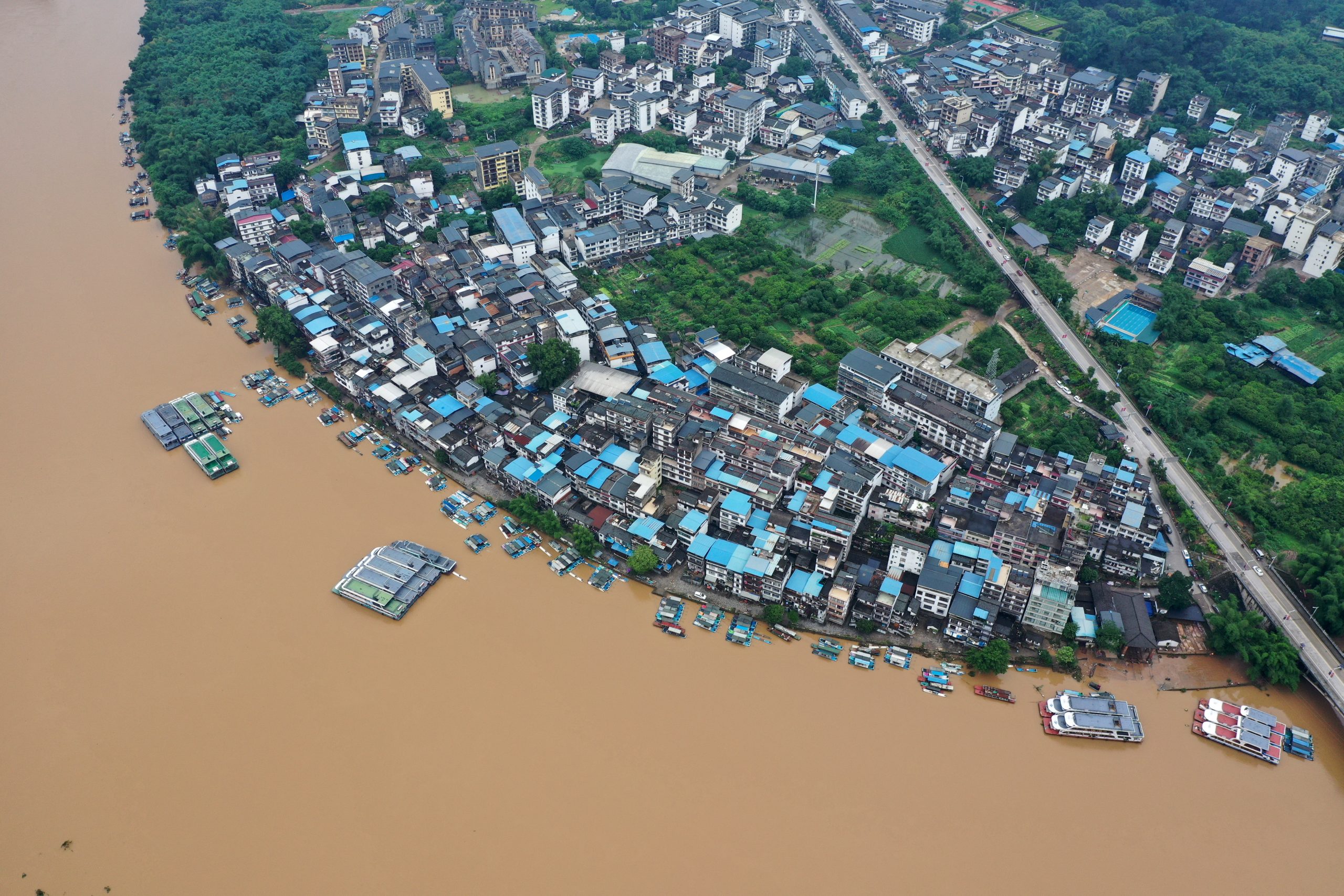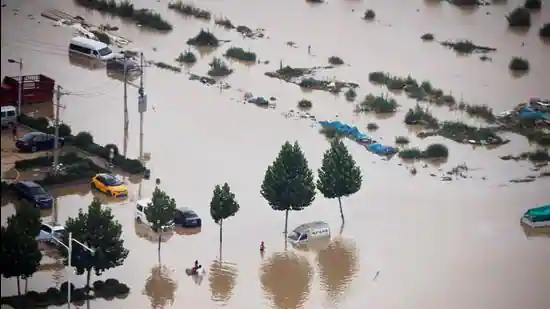News
China’s Agricultural Sector Struggles with Floods and Extreme Heat

(CTN News) – China is currently grappling with a challenging combination of floods and extreme heat, posing significant obstacles to its agricultural sector.
The New York Times reported that heavy downpours have adversely affected crops in several provinces, while some regions are experiencing intense heat waves.
President Xi Jinping has emphasized the responsibility of feeding China’s vast population, but unforeseen weather events have disrupted wheat harvests and threatened pig and fish farming.
Excessive heat has led to unfortunate consequences, such as the death of fish in rice paddies in Guangxi Province and the loss of hundreds of pigs in Nantong City.
President Xi Jinping’s Commitment to Food Security Amidst Weather-related Setbacks
Disturbingly, heatstroke among pigs being transported even prompted the intervention of the fire department in Tianjin, which splashed water on them to prevent further casualties. In Xinjiang’s northwest, officials have warned about potential damage to wheat harvests caused by high temperatures and flooding.
Central China experienced delayed rainfall in May, which significantly impacted the harvest. In response, government emergency teams were deployed to salvage as much of the crop as possible when the rain caused wheat kernels to turn black and become unsuitable for consumption. Local officials described this disruption as the most significant setback to the wheat harvest in a decade.
These substantial rainfall events and heat waves have underscored the challenges associated with President Xi Jinping’s goal of enhancing China’s self-sufficiency in the food supply.
Strengthening Food Security: China’s Strategies in Response to External Shocks
While China has not experienced food price inflation to the same extent as other developed nations, policymakers are increasingly concerned about the vulnerability of its food supply to external shocks.
Last summer, the Chinese government released pork from strategic stockpiles to stabilize prices after fruit, vegetable, and pig prices soared. This prompted authorities to reiterate their prioritization of food security.
It is crucial to address food shortages and ensure a stable food supply, as demonstrated by the unrest in Shanghai during the stringent COVID-19 lockdown. The city, home to 25 million people, faced challenges in accessing food, leading to social unrest.
Videos on social media depict individuals struggling to obtain food in supermarkets and on the streets. Subsequent demonstrations against China’s “zero Covid” measures included protesters chanting, “We want food, not Covid tests.”
conclusion
In conclusion, China’s agricultural sector is facing a significant struggle due to the combination of floods and extreme heat. The adverse effects on crops, fish and pig farming, and wheat harvests highlight the importance of prioritizing food security in the country.
China’s policymakers are actively working to strengthen the resilience of the food supply chain and mitigate vulnerabilities to external shocks, aiming to ensure a stable and sufficient food supply for its population.






























